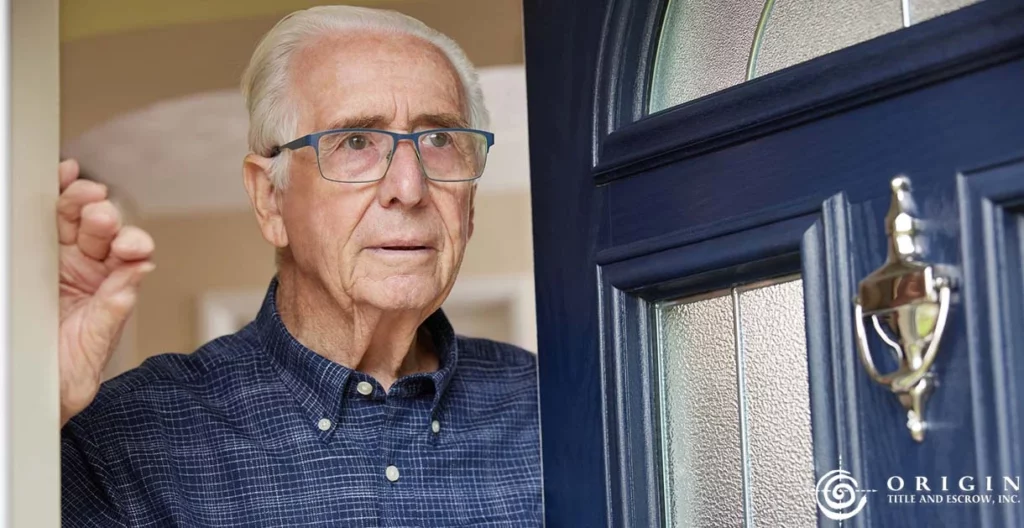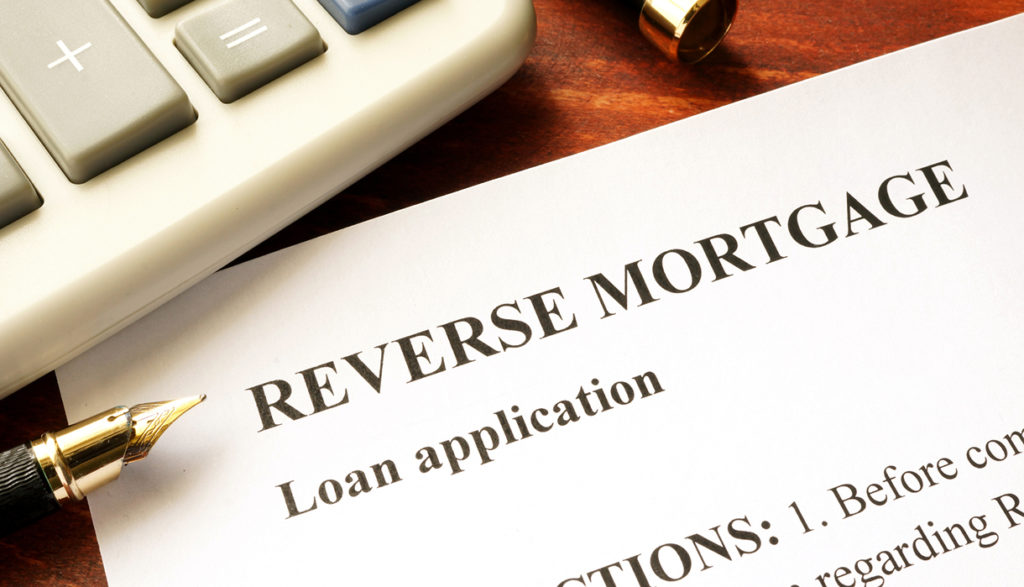Reverse Mortgages
Reverse Mortgages: When a Spouse is Too Young to Qualify
There are never any required payments for a reverse mortgage until the borrower dies, moves, or fails to pay property taxes or insurance. If one of those events happens, the full amount of the loan is due.
Sometimes one spouse would not be 62 years old yet and be too young to qualify for a reverse mortgage. HUD would then require the younger spouse to be removed from title because they did not qualify for the loan.
This created a big problem when the older spouse passed away and the loan came due. The surviving spouse would have to pay off the reverse mortgage. This resulted in many surviving spouses being forced to sell their house or risk a foreclosure.
HUD fixed the problem of surviving spouses being evicted by allowing them to stay in the house after the borrower passed away. The revised rules still do not require any monthly house payment from the surviving spouse.
HUD also allows a spouse younger than 62 years old to remain on title for the loan. This only
applies if the people were married at the time the loan was closed. The surviving spouse cannot access any additional money in a line of credit from the reverse mortgage, but no payments are due. This allows the surviving parent to live in their home if they want to, and keeps them from having to move in with other family members.
The reverse mortgage has had many changes the past 20 years to fix past problems. We are happy to answer any questions without any obligation.
John C. Bennett is a real estate closing attorney and owner of Origin Title and Escrow, Inc.. Since 2003, Origin Title has handled real estate transactions – purchases, refinances, reverse mortgages – quickly and professionally. There will be no surprises, nothing misunderstood. Title searches are thorough and well-reasoned, to avoid unpleasant surprises later down the road. Calculate your closing costs in Georgia or Florida using our calculator or contact Origin Title using this form.
What happens to a reverse mortgage when you move?
A reverse mortgage can be a great option for senior homeowners, as it can help to increase cash flow and allow them to stay in their homes longer. But what happens when the borrower moves out?
Reverse mortgages become due when the last borrower on the mortgage passes away, sells the home, or moves out of the home for 12 months or longer. Typically, when a reverse mortgage borrower moves out of the home for 12 months or more, he or she is moving permanently to an assisted living facility or with loved ones. Moving is considered default, the mortgage comes due and the home likely must be sold.
What if your spouse is living in the home but not listed on the reverse mortgage? Read more about non-borrowing spouses here.
Origin Title partners with real estate agents who help seniors downsize so they can stay in their home as long as possible.
Intricacies of a Reverse Mortgage
With a standard mortgage, the borrower is personally responsible for the note. In the case of a foreclosure, the bank will foreclose on the property and sell it in order to recoup the amount still due. If the bank sells the house for less than the amount due on the loan, the bank can file for a deficiency judgment against the borrower for the money that is owed. Although this is rare, it does happen.
With a reverse mortgage, the lender can only foreclose on the house. They cannot pursue the borrower (or an heir) for any outstanding loan amount because a reverse mortgage is a non-recourse loan. Even if the house is worth less than the mortgage amount, the lender cannot go after the borrower or the borrower’s estate for the remainder of the money. Reverse mortgages are good for seniors who need the cash-flow and are comfortable with their heirs not inheriting as much equity in the house.
These questions often come up at closings, and reverse mortgage lenders need a closing attorney that can confidently answer those questions so the process can move forward.
Borrowing and Non-Borrowing Spouses on a Reverse Mortgage
A married couple may have a reverse mortgage with only one spouse listed on the property and as the only borrower. The other person not on the loan is listed as a “non-borrowing spouse”.
Remember that reverse mortgages have no payments and the loan is not due until BOTH spouses move out of the house, whether through death, selling the home, or moving into an assisted living facility. This is a big improvement for the reverse mortgage because, in the past, a non-borrowing spouse was either required to pay off the reverse mortgage or move out. Now, if only one spouse qualifies for the reverse mortgage, it’s not a problem because the other spouse is able to stay in the home even if they are not on the loan. A ‘non-borrowing’ spouse may remain in the home, but would not have access to the line of credit if there was one.
It’s important to make sure that you, your spouse, and your family all understand how a reverse mortgage works. At Origin Title, we’re committed to helping our clients find solutions that work for them.
Using a Reverse Mortgage for a Home Purchase
As housing prices rise, many seniors believe they can’t afford to buy a new house that’s better suited to their new lifestyle. A reverse mortgage can be a good option for someone over 62 and requires no monthly payments. Reverse mortgage funds, which are only available on a primary residence, are structured as a lump sum or line of credit that can be accessed on an as-needed basis.
People who learn about this type of mortgage are happy to buy their retirement home in that golf community they’ve been dreaming of without having to make monthly mortgage payments. Borrowers can usually borrow about 60% of the house value, so the down payment is usually 30 – 40% instead of the standard 20%. This could be difficult for first-time home buyers, but people over the age of 62 typically have the funds to make a larger down payment.
Origin Title has been working with clients who choose reverse mortgages over 15 years now. We know how reverse mortgages work, can clear title issues and know the requirements for a reverse mortgages closing.
Do both spouses have to be over 62 to qualify for a reverse mortgage?
In Georgia, a reverse mortgage allows a homeowner who is above the age of 62 to borrow against the value of their home. Unlike a typical mortgage, a reverse mortgage doesn’t require the homeowner to make loan payments. Instead, the entire loan balance is due when the borrower dies, moves or sells the home.
In a situation where one spouse is younger than 62 years old, the couple can still get a reverse mortgage. The homeowner over 62 years old would need to borrower. If the borrower passes away, the surviving spouse may continue to live in the house should they choose to do so. The surviving spouse would continue without mortgage payments but would not have access to any further funds from the reverse mortgage if there was a line of credit. The good news is that the lender can’t foreclose on a surviving spouse if the borrower was married at the time of the reverse mortgage, even if that spouse didn’t qualify for the reverse mortgage.
If a reverse mortgage is something you’re considering for yourself or a family member, be sure to choose a closing attorney with extensive experience with that kind of loan. A reverse mortgage is handled quite differently from a conventional loan.
Heir to a Reverse Mortgage
When a person passes away, the heirs must decide if they want to sell the house or convey it to an heir.
With a regular mortgage, heirs have three options:
- Keep paying the mortgage of the deceased person until an heir assumes the loan
- Sell the house to a third person
- Let the house go through foreclosure
When the deceased had a reverse mortgage, the options are the same with the exception that there are no mortgage payments to keep up with. The person simply must tell the lender if they are selling the house, buying it themselves from the estate, or letting it go to foreclosure. Heirs normally have about a year to sell the house. If the house still has some equity, most heirs would sell the house and split the net proceeds. If there is no equity, most heirs let the house get foreclosed because it doesn’t hurt anyone’s credit and avoids the hassle of trying to sell a house.
Have you ever been the executor of an estate? Reverse mortgages actually make it easier in this situation. Realtors who worry about reverse mortgage purchases can feel comfortable working with Origin Title & Escrow because they have closed over 1,100 reverse mortgages.
Sometimes Foreclosure is Exactly What You Want
Regular mortgages require the borrower to be personally responsible for the note. If the borrower is in default, the bank will foreclose on the property and sell it to recoup the loan amount. If the bank sells the house for less than the amount due on the loan, the bank can file for a deficiency against the borrower for the rest of the money that is owed. It’s rare, but it does happen.
In a reverse mortgage, the lender can ONLY foreclose on the house. They may not pursue the borrower for any outstanding loan amount because a reverse mortgage is a non-recourse loan. Even if the house is worth less than the mortgage amount, the lender is unable to get any money from the borrower or the borrower’s estate.
In a situation where a homeowner has passed away leaving a reverse mortgage, heirs must either sell the house to a third person, payoff the loan and buy it themselves, or let the house go through foreclosure. If the house still has some equity, most heirs would sell the house and split the net proceeds. If there is no equity, most heirs let the house get foreclosed because it doesn’t hurt anyone’s credit and avoids the hassle of trying to sell a house. In summary, reverse mortgages actually make it easier in this case.
Situations like these are discussed at closing. Reverse mortgage lenders want a closing attorney with reverse mortgage experience to handle these closings, so that all questions can be answered on the spot.
WITH A REVERSE MORTGAGE, CAN I LOSE MY HOUSE IF THE LENDER GOES UNDER?
When a borrower seeks a reverse mortgage, they are still getting a loan that uses the house as collateral. Instead of making payments toward paying off the loan, they receive distributions (like a line of credit) from the lender.
If a lender goes out of business and is unable to service the loan – and is therefore unable to make those distributions to the borrower – what happens? Is the house considered an asset for the defunct lender and can it be sold right out from under the borrower?
No – that will not happen, and here is why. When a borrower gets a reverse mortgage, they sign two Security Deeds (that’s what most borrowers consider the “mortgage”) – one to the lender, and then one to HUD, the US Department of Housing and Urban Development. With reverse mortgages, the lender must have cash to service the loan because they are likely obligated to make monthly payments or provide a line of credit to the borrower. If the lender fails, FHA insures those obligations, so the house will not be lost.
Loan officers who have access to reverse mortgage products would benefit from working with a residential loan closing attorney who thoroughly understands the way the programs are structured and can explain everything to borrowers in a way they will understand.
ARE PROPERTY TAXES PAID FROM AN ESCROW ACCOUNT WITH A REVERSE MORTGAGE?
Reverse mortgage loans do not require an escrow account, because the borrower receives money, rather than making payments. Since conventional mortgages are usually set up to include property tax and homeowner’s insurance, how does the reverse mortgage loan holder pay for those elements? The borrower acquires and pays for insurance independently, and pays taxes directly to the tax authority.
On-time payment is essential, because if the borrower has paid property taxes late within the last three years, the lender will likely require a LESA account — a Life Expectancy Set-Aside account, which sets aside enough money to pay the property taxes every year of the remaining expected lifetime. Taxes and insurance payments must be paid on time after closing as well. Failure to pay taxes and insurance is considered in default for reverse mortgages and can result in foreclosure.
Does the LESA account really impact the borrower? It can be a big number if the borrower is younger: in 2015, the lender required a $73,000 LESA account deposit for a 62-year old, city of Decatur borrower.
Loan officers and reverse mortgage specialists enjoy working with a closing attorney who can explain the rules, requirements, jargon and singularities in reverse mortgages to homeowners.










